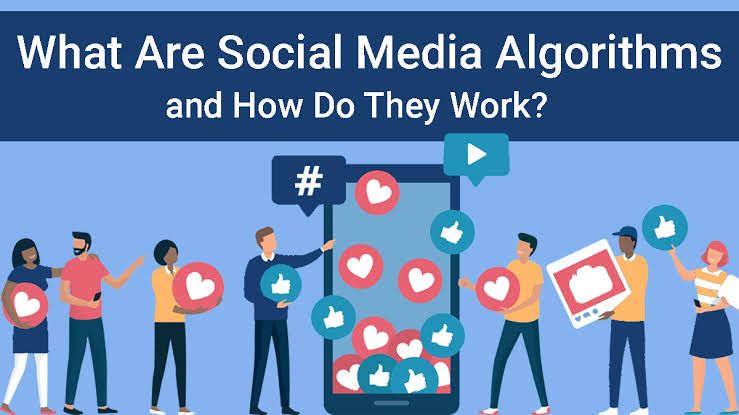
Decoding the Digital Curator
In this vast world of social media, algorithms play the role of digital curators, shaping what we see in our SOCIAL MEDIA FEEDS. The following article explores the inner workings of social media algorithms and their significant impact on our digital experiences.
What Are Social Media Algorithms?
Social media algorithms are complex systems designed by hardcore programmers and used by platforms like Facebook, Twitter, and Instagram to decide which content to show to its users. These algorithms analyse user behaviour, their preferences, and their interactions with content and their friends to curate a personalized feed. They aim to display content that’s most relevant and engaging to each individual user.
How Algorithms Shape Your Feed
These algorithms take into account various factors such as the posts you like, share, or comment on, the accounts you follow, and the time you spend on certain types of content. Based on this data, the algorithms predict what you might like to see next and prioritize these posts in your feed. They push the type of content in your feed which is expected to be liked by you or engaged with.
The Business Behind Algorithms
Social media platforms use algorithms to increase user engagement, which in turn drives advertising revenue. By showing users content that keeps them engaged longer, platforms can serve more ads and increase their profitability. This business model significantly influences how algorithms curate content. Because the truth is : Every social media company chases money and in order to keep the cash flow running, they want users to spend maximum time on their platforms.
Algorithms and Content Creators
For content creators, understanding and adapting to these algorithms is crucial. Engagement, consistency, and relevance are key factors that can help content appear more frequently in users’ feeds, increasing visibility and reach. Every creator studies his content demographics to under what age group he is targeting at and the type of posts they would appreciate.
Impact on
a.) User Behaviour
Echo Chambers: One of the criticisms of these algorithms is the creation of ‘echo chambers.’ By continuously showing users content that aligns with their existing beliefs and interests, algorithms can limit exposure to diverse perspectives, reinforcing existing viewpoints.
Addiction and Time Spent: By continuously providing personalized and engaging content, these algorithms can make social media highly addictive. The dopamine hits from likes, shares, and comments can lead to users spending excessive amounts of time on these platforms, which can affect productivity, mental health, and overall well-being of the user.
Rise in Insecurities: The content curated by algorithms can significantly affect users’ moods. For example, constant exposure to negative news or posts about others’ seemingly perfect lives can lead to feelings of anxiety, depression, and inadequacy. Social comparison is heightened, and it starts to bring about a rise in insecurities where the users start comparing themselves to the individuals/creators they see on social media.
b.) Society
An Attack on Unity: On a societal level, the echo chambers created by social media algorithms contribute to political and social polarization. By primarily exposing users to content that aligns with their views, algorithms deepen divides and reduce the possibility of constructive dialogue between opposing viewpoints.
Misinformation and Fake News: Algorithms prioritize content that generates high engagement, which can include sensationalist or false information. Misinformation spreads rapidly, affecting public opinion and behaviour. This has been particularly evident during events like elections and the COVID-19 pandemic, where false information can have serious consequences.
Manipulation and Influence: Algorithms can be exploited for manipulation. For instance, political campaigns and interest groups can use targeted ads to influence voter behaviour. The Cambridge Analytica scandal in 2014-15 is a prime example of how data and algorithms can be used to sway public opinion on a large scale.
The Future of Social Media Algorithms
As awareness of the impact of algorithms grows through such articles, there’s a call for more transparency and user control over content curation. Future developments should include more options for users to customize their feed and for greater clarity on how content is ranked and displayed. We, as netizens should raise our voices to demand for the same.
Ask yourself- How do you personally feel about the impact of algorithms on your social media experience? Do you think these algorithms enhance or limit your online interactions?

Author – Akshat Gupta
St. Joseph’s Academy









Texas Hervey
Good web site you have got here.. It’s difficult to find quality writing like yours these days.
I really appreciate individuals like you! Take care!!
Duice Zeigan
you’re actually a just right webmaster. The website loading pace is amazing.
It kind of feels that you are doing any unique trick.
In addition, The contents are masterwork. you’ve performed a wonderful job in this subject!